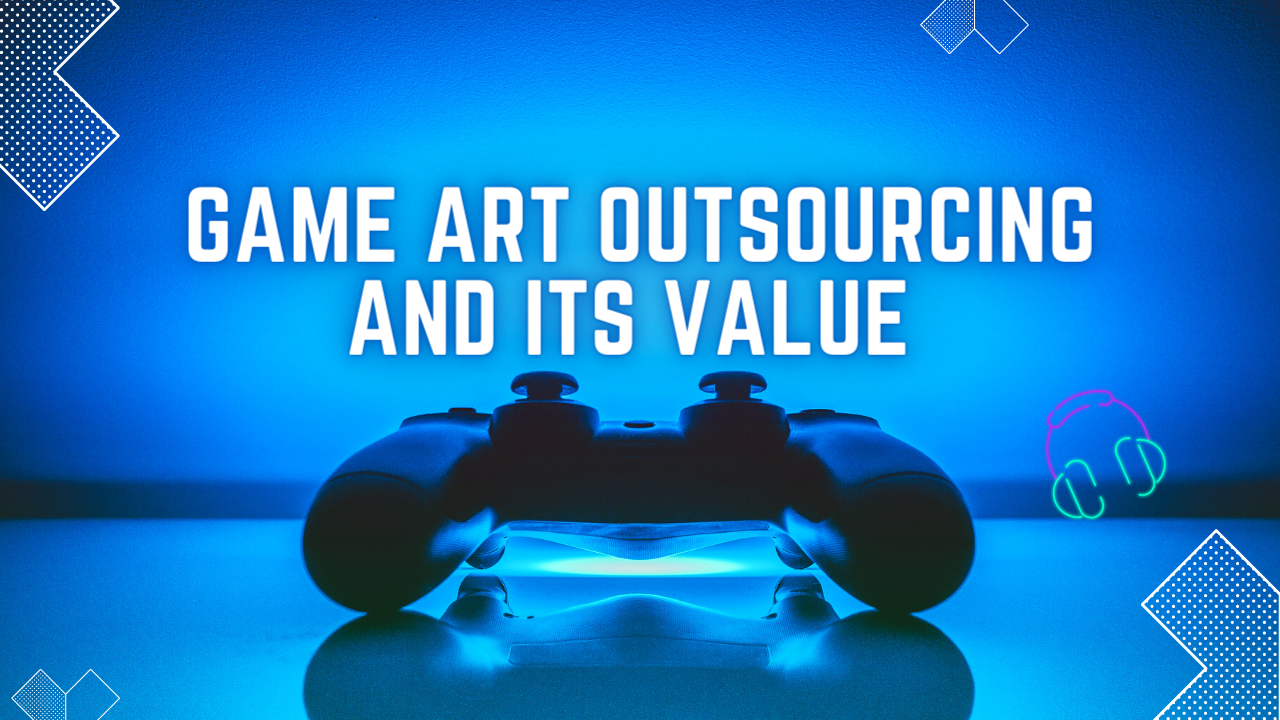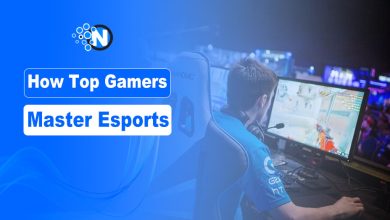Game Art Outsourcing And Its Value

Developing the game is typically a complex and multi-tasking challenge that includes many engaged teams and numerous details when creating. That’s why game art outsourcing is highly used by companies to make things more efficient and reduce expenses.
Outsourcing in gaming
Outsourcing (outer-source-using) means that game studios hire other teams by giving them some repetitive or complex tasks. With such, the main team can pay additional attention and put extra effort into more priority tasks, meanwhile outsourcing studios are used as support units.
According to the research, almost 86% of developers use such services at least for one aspect of the process. Thus, we can see that outsourcing in gaming plays a significant role. And the number of studios that use such options is continually growing every year.
Purpose of outsourcing in game art
Typically outsourcing studios are recruited to complete routine tasks with low priority. There is the company’s staff who do all the main jobs, and outsourcers in such a case are something like an extra workforce to enhance and improve the whole process.
The key advantage here is not about saving money, but rather assisting companies to use their power in the most proficient way.
When creating a game, a big number of tasks are related to art and visual elements, that’s why outsourcing is widely used when it comes to art. And instead of hiring a couple of new artists, it is more profitable for the company to use external studios that already have a professional crew.
Many games studios hire outsources to make 2D or 3D arts of characters, in-game items, environments, etc. Also, tasks related to animations and various visual effects to procure the future product with its unique ambiance and appearance is a common thing. Same with the last stages before release, when outsourcing studios can be recruited to create trailers and cinematics to show the best sides of the game.
As we can see there are plenty of cases where it is worth hiring external teams to accomplish some of the various tasks regarding the working process.
Advantages of outsourcing in gaming
The main thing about outsourcing is that it allows studios to work on a few projects at the same time, which leads to higher income and helps to meet terms. Also, the team may feel free about plenty of things related to the process and avoid overworking.

Some of the core benefits include:
- The company gets assistance to accomplish and improve the project
- The team can pay more attention to top-priority and more interesting tasks
- It helps to provide cost-efficient strategies and also eliminates overworking
- The game studio gets an opportunity to work on a few different projects
- It requires less time and costs to release the game
- Outsourcing studios have specific equipment and tools to accomplish the tasks
What can be outsourced?
Depending on studios and which types of services they offer there can be various tasks the company may outsource.
In the gaming industry, it usually can include plot creation, storyboarding, concept arts, animation, 2D and 3D visuals, as well as video production and post-production.
In other words, almost each of the developing process parts can be easily outsourced. That’s why if we take a closer look at many modern games whether these are indie, mobile, or AAA, we can see that there are at least a few different studios that have been involved in the developing process in some stages.
And it is easy to find out whether the game was created together with other studios or not. Just pay attention to the end credits if these are really long then it means that plenty of studios have been involved to create and release that game.
How outsourcing works
The common misunderstanding related to outsourcing is that many people may think it means all of the processes are done separately by separate teams and then these just connect to become one thing. And it is like that but only at the first glance. However, outsourcing is more about cooperation. Thus, different teams not only create the game but also listen to each other’s ideas and try to perform these.
So in many cases, we can see a decentralized hierarchy where the tasks are not only dictated but discussed as well. Thus, such studios instead of just “doing the job” also makes a creative contribution, which helps to create a great and interesting game as plenty of different ideas and visions may combine together.
For sure, the main company has the veto right and also can decide which changes are acceptable or inappropriate, however, when using external studios it can be easily called the result of joint creative efforts.
In conclusion
It is hard to underrate the real value of outsourcing in the modern gaming industry. As games typically become more complex with improved visuals, enhanced gameplay features, and non-trivial stories behind the plot in many cases, the whole process becomes harder and requires more effort and time to be successfully accomplished. That’s why outsourcing is so popular nowadays.
When we look closer at the market whether these are games for mobile, web, PC, Xbox, or any other platforms, one can clearly see it is always about cooperation between a few studios, as there are too many small and big details the single one company can hardly complete using only its resources.
By hiring outsourcing studios, developers can make such a complex process way handier and more structured. When dividing the whole process into separate stages and recruiting external teams for each of these, things become easier.




